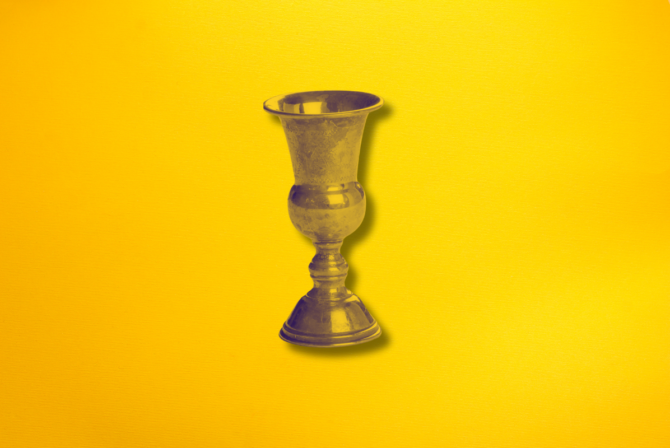As I walk down the boardwalk at the Jersey shore and pass the packed game rooms amid the sweltering heat of the summer, I can’t help but think about the difficult questions that my kids have been wrestling with lately. Like the critters in the Whack-A-Mole arcade game, these life challenges have been popping up randomly and fast, begging to be crushed and obliterated. I attempt my best impersonation of Mike Brady and dispense my fatherly advice freely and with ease. However, rarely in life are problems resolved neatly within the span of a half an hour sitcom. My consolation is at least we are without commercial breaks.
Perhaps my use of the word kids is a little misleading. At the age of 17 and 22 and sporting five-o’clock shadows, my boys are much more like young men than they are kids. Suddenly and without warning, questions of relationships, college choices, and career advice have replaced bruises, broken toys, and blown baseball games.
READ: How Will We Navigate Orthodoxy As My Feisty Daughter Grows Up?
So, what is a father to do? Perhaps read the latest self-help book on parenting or scour the Internet for sagely advice from an article such as this one? With the title of quinquagenarian soon to be bestowed on me, I decide to play to my strength. I share my words of wisdom and offer my boys the knowledge that I have gained from the simple fact that I have been on this Earth a lot longer than they have.
However, I find myself listening more to them in amazement than giving them my advice. As they go through the pros and cons of their choices, it is obvious to me that they already know the answers to their conundrums; they are just working through their choices with me present. It’s apparent my role is simply to be a sounding board and to provide them with a little assurance and confidence.
This was never more obvious to me than when my son recently deliberated the heart-wrenching decision to end a two-year relationship through the guise of seeking my advice. I sat back, listened, and nodded, not letting on that I could already see the answer coming. Years of guiding my boys to manhood have taught me that in life, we often know exactly what is the correct course of action; that is, if we are truly honest with ourselves.
READ: My Sons Grow Farther Apart Every Day
I was reminded of a few years earlier, when my youngest son and I were listening to his favorite band, Mumford and Sons, and he asked me to explain the meaning of a particular song. The song’s title is “Timshel,” a word which is conspicuously absent from the lyrics. When I first read what seemed like a poem, a particular verse stood out to me with a message that I think of every time I wrestle through a tough decision:
And you have your choices
And these are what make man great
His ladder to the stars
At the time, I searched the Internet for the significance of the word timshel. I wondered what the word meant and how it related to the three lines that have seemingly become my mantra for parenting. Serendipitously, I discovered the word timshel (תמשול) is actually Hebrew and that these three lines were inspired by the words of John Steinbeck from his epoch novel “East of Eden.” A veritable midrash, or interpretation, on the biblical story of Cain and Abel, Steinbeck’s novel was inspired by 16 verses of Torah that recounted the tumultuous sibling rivalry of the sons of Adam.
In the novel, the main characters discuss the story of Cain and Abel. In particular, they debate the correct translation of the word timshel used in Genesis. There are many suggested translations of this word, from shalt, should, or must. But, Steinbeck, through his characters, affirm “thou mayest” as the best expression of the Torah’s intent. The subtle nuance in how the word is translated is important as it signifies, in the context of the sentence, that God has not predetermined us to be either good or bad. That we have the power to make those decisions ourselves. God says, “thou mayest rule over sin.”
So there it was: words from the Torah, a great American novel, a beautiful song from my teenage son’s favorite band, and a father trying to help his sons learn how to make life’s difficult choices. Each choice we make in life is like a rung on a ladder. A falter or a slip can cause us to descend, while a positive step can lift us towards the sky. And while society, religion, and our upbringing provides us with guidelines to many of our choices, most decisions are complex and are neither right nor wrong and are decisions we are left to decide alone.
READ: You Never Know When it Will Be the Last Time
My older son knew his relationship was over, even if he wasn’t quite ready to admit it to himself. There was no justifiable or logical reason to break off the seemingly fine relationship with a perfectly nice girl. The only conclusion he could come to was that somewhere in his heart, he knew it was over. Another life lesson learned that played out before me very eyes; in life, it is about looking inside ourselves for the answer and then finding our own inner strength and courage to act accordingly. My fatherly advice came down to this simple comment: “You seem to already know what to do.”
These are the decisions that arise from within our own hearts and determine, as the song “Timshel” suggests, how close we get to the stars. At least that is what I have learned from being a father to two incredible sons.
And, just in case you’ve never listened to the Mumford & Sons song “Timshel,” check it out below:







